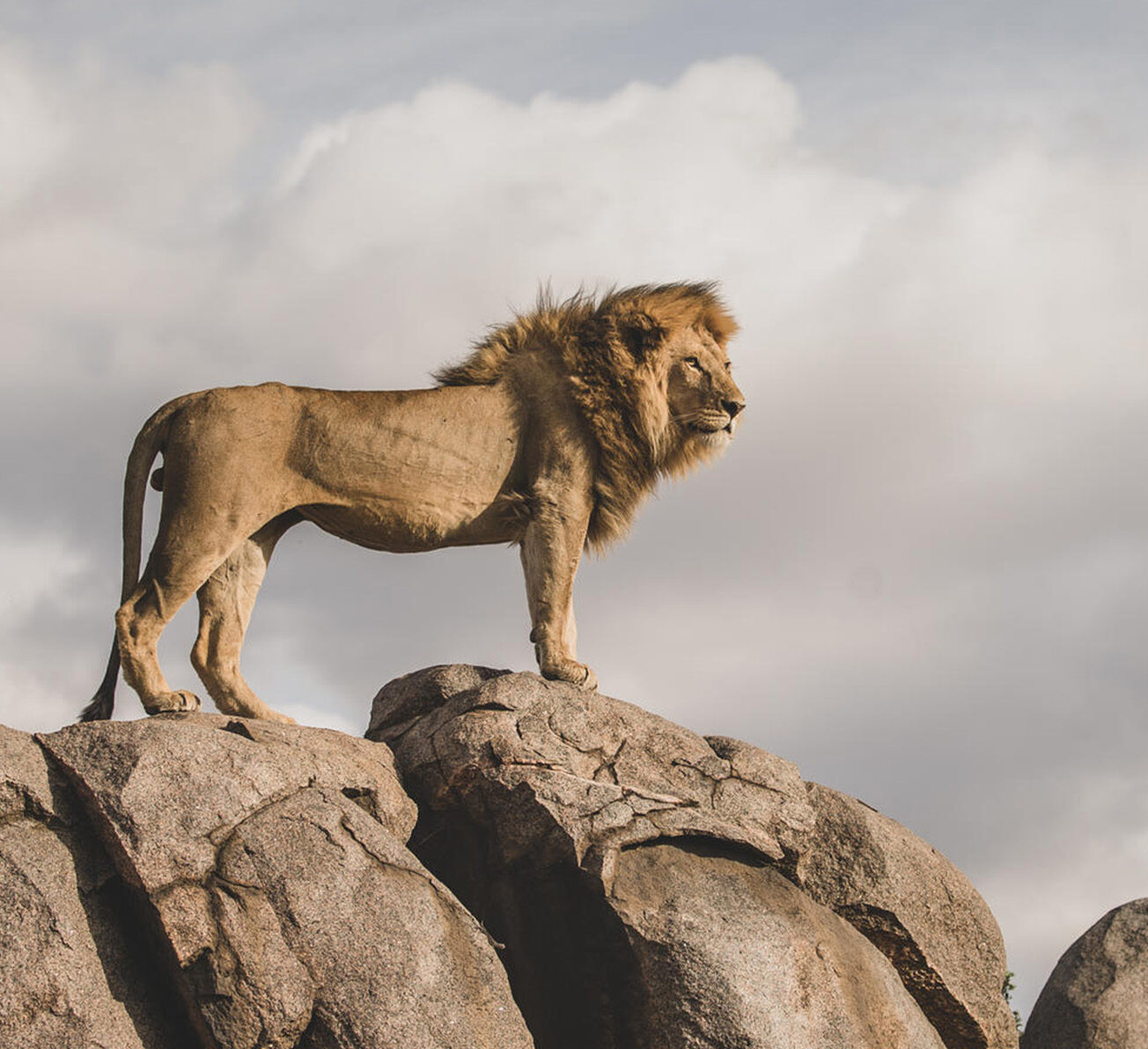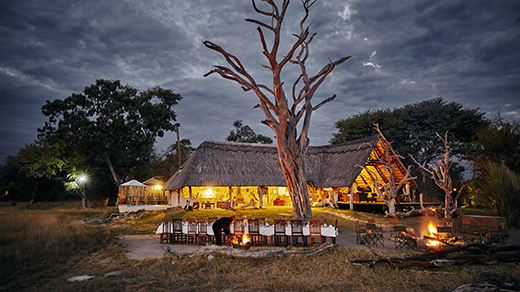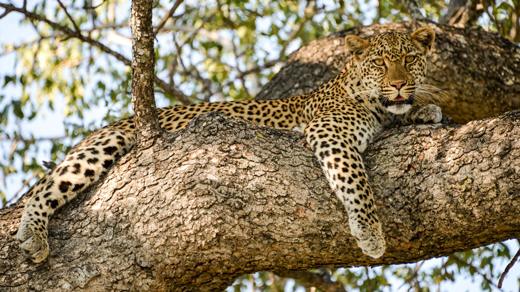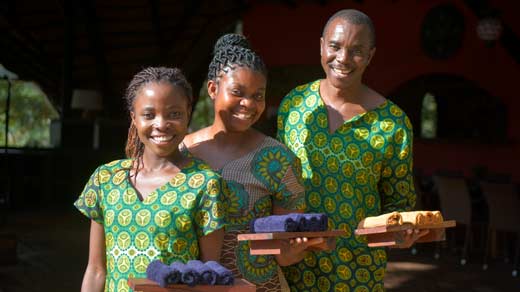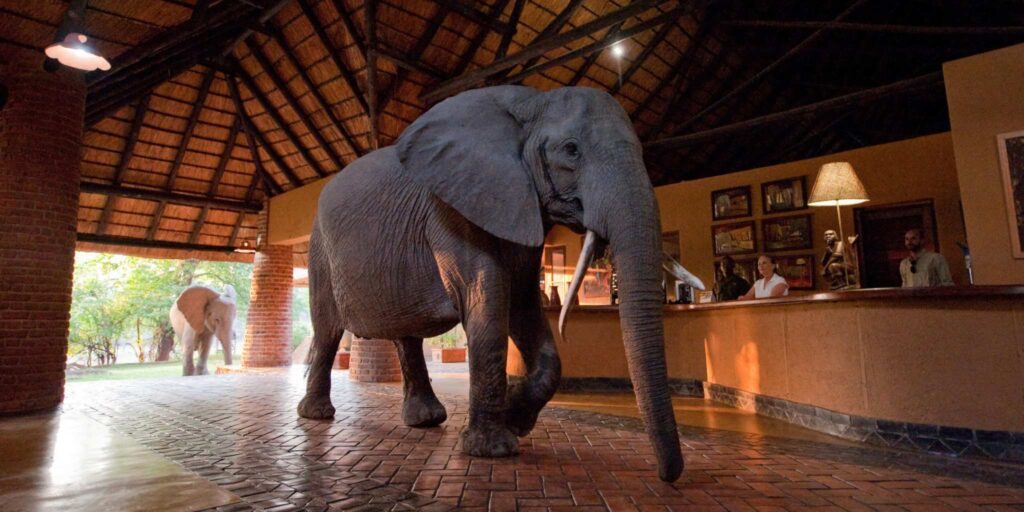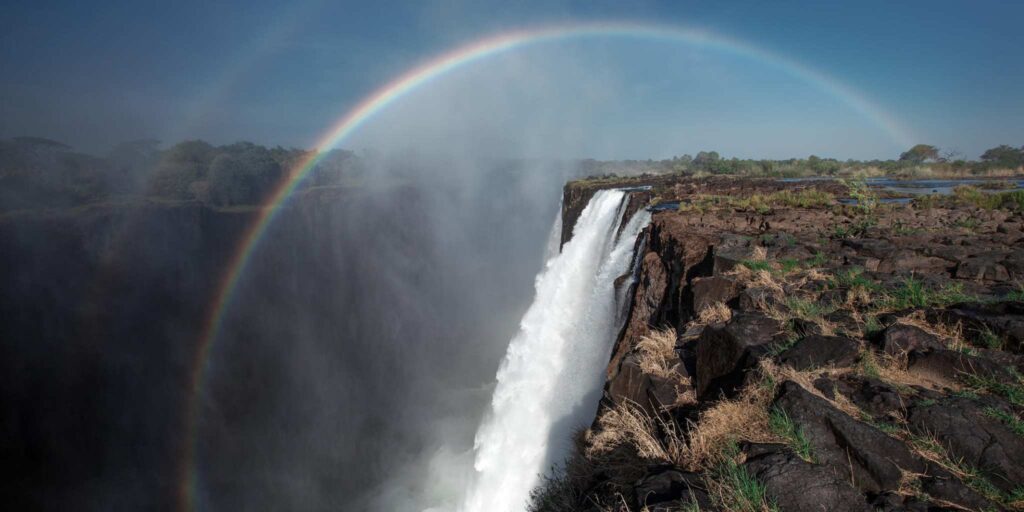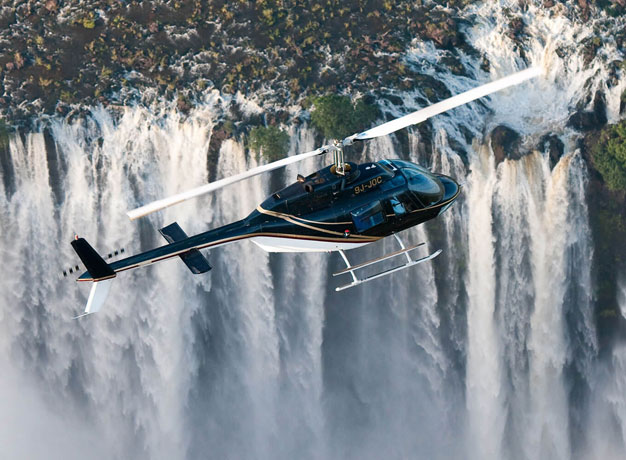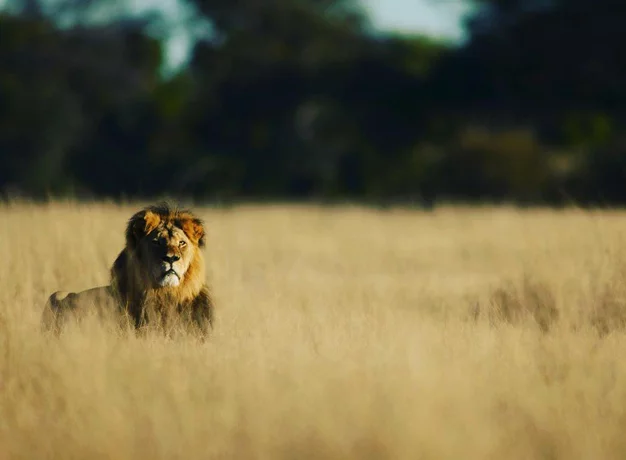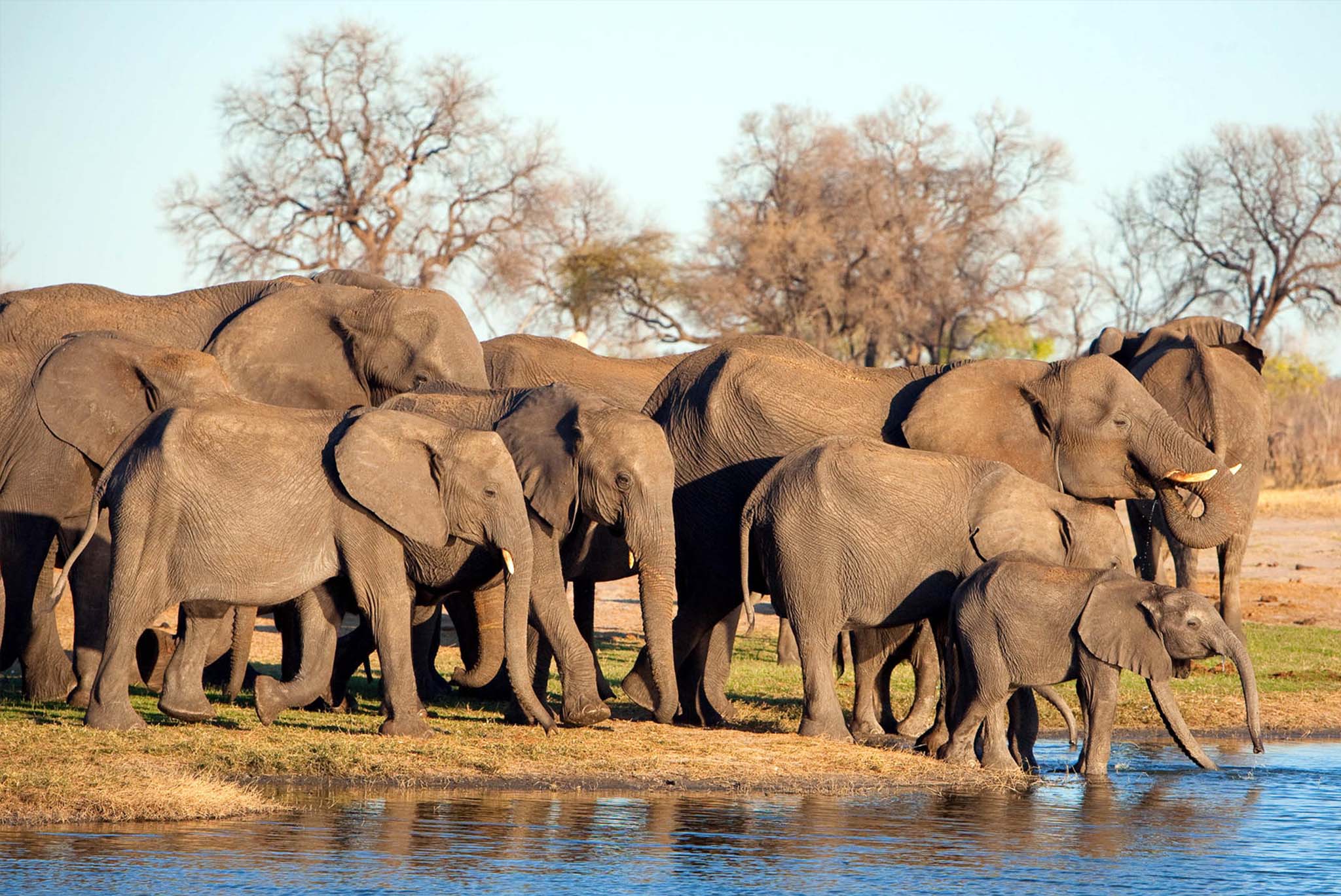
Zimbabwe
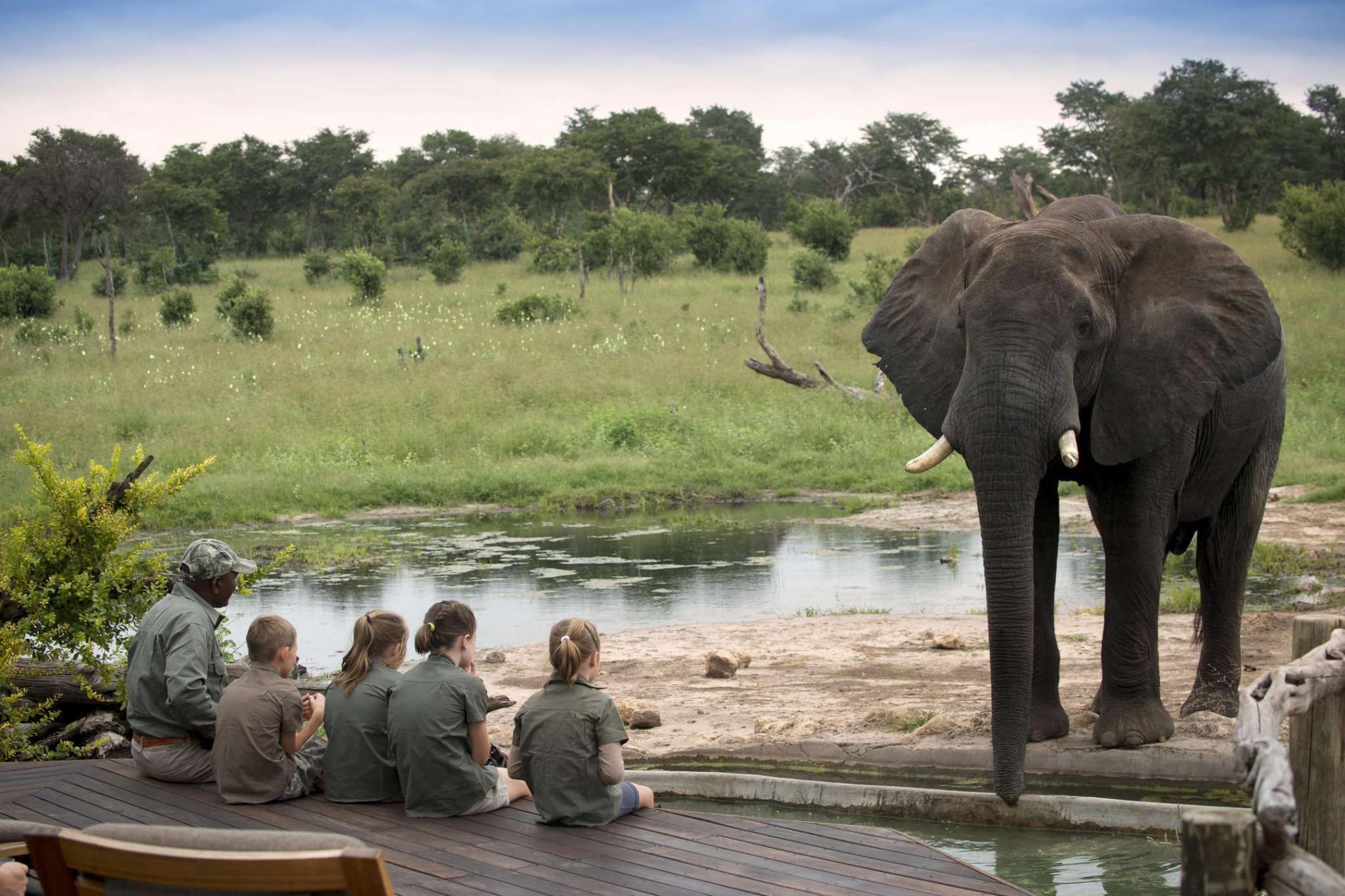
Zimbabwe Safari Tours and Holidays
Home to Victoria Falls, one of Africa’s greatest natural wonders, Zimbabwe is a nation blessed with spectacular scenery and a host of wildlife. A Zimbabwe tour holds great appeal for active adventurers, outdoor enthusiasts, and those with an appreciative eye for beautiful landscapes.
With a rich history both ancient and modern, Zimbabwe is opening its doors to intrepid travellers from around the world, allowing them to discover some of the country’s unique features. Whether you’re venturing into the bush on a game drive, or getting your adrenaline rush at the end of a bungee rope, Zimbabwe never fails to amaze.
At Bench Africa, we’ve spent years building up a range of exciting, memorable experiences around Africa, with the help of our knowledgeable ground team. Read on to find out more about what your Zimbabwe holiday could hold in store.
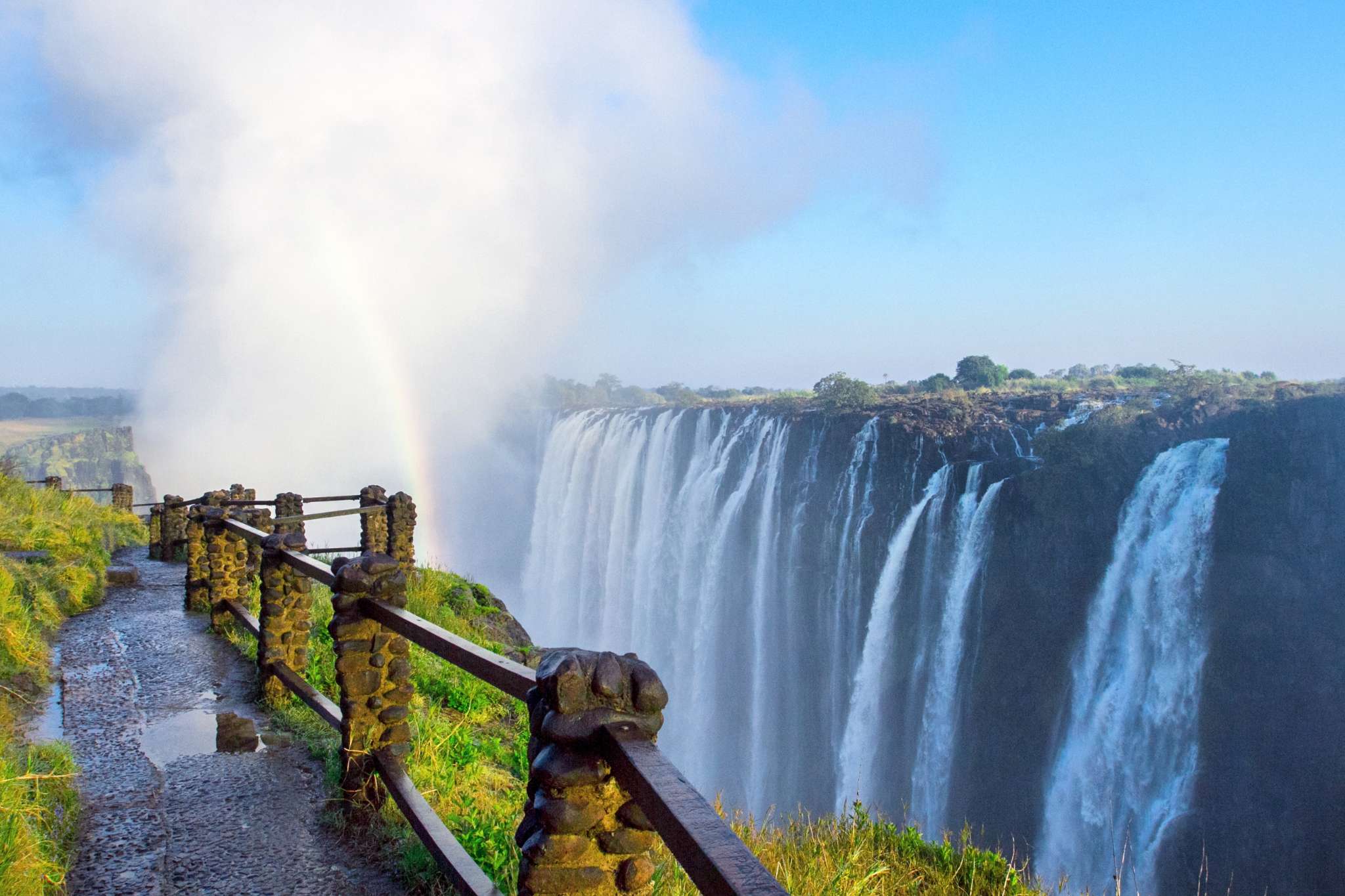
About Zimbabwe
Situated in southern Africa, Zimbabwe is a landlocked country bordered by Botswana, Mozambique, South Africa and Zambia. Covering some 390,000 square kilometres, it is characterised by the lofty Inyanga Mountains and highlands as well as the great Zambezi River, which feeds the earth and provides power to the Kariba Dam.
Before it was the Republic of Zimbabwe, the country went through several colonial guises from Southern Rhodesia, to Rhodesia, or Zimbabwe Rhodesia before gaining independence from Britain in 1980. The capital of Harare is also the nation’s most populous city, and is home to just under 1.5 million of Zimbabwe’s total population of 12.75 million people.
Zimbabwe uses a multi-currency system, meaning the US Dollar, South African Rand, GB Pound and the Euro are all accepted. While English is an official language in Zimbabwe, Shona is the most widely spoken, followed by Ndebele. No matter when you visit, you can expect a tropical to temperate climate, with warmer temperatures making for pleasant summer nights especially in the lowlands in the south.
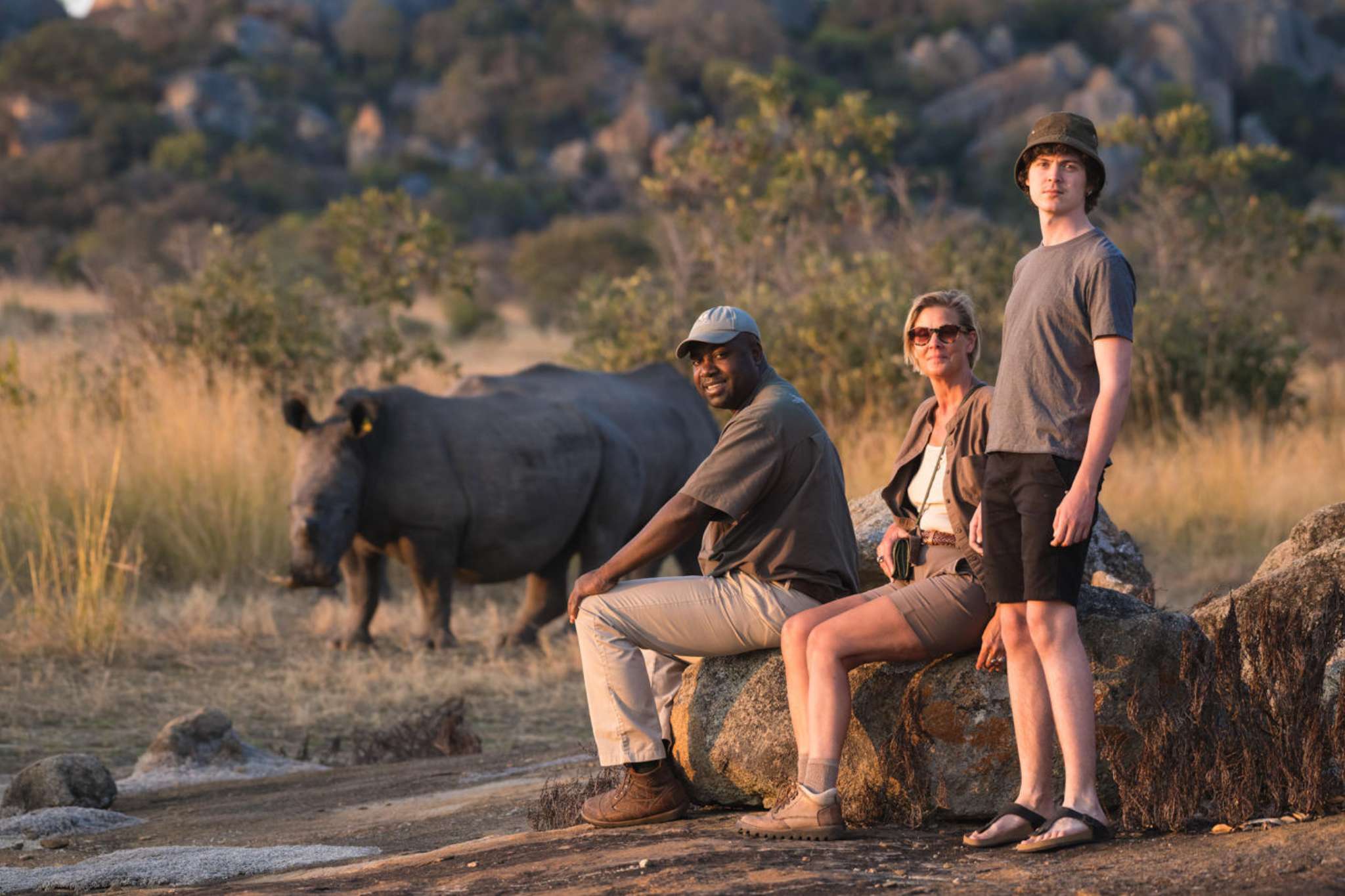
Zimbabwe tourism
The Victoria Falls are, of course, one of the main attractions for many visitors to Zimbabwe. The nation’s most popular tourist destination, the falls simply have to be seen for their majesty to be believed. Watch as the mesmerising curtain of water plunges over 100 metres into the Zambezi Gorge below.
You can admire the fall’s famous clouds of mist and brilliant rainbows from a number of viewpoints, or take a helicopter ride over Victoria Falls to get the full effect. The area is renowned for being the ‘adventure capital of Africa’, offering some of the wildest whitewater rafting around and a 111-metre bungee jump into the Zambezi River gorge from the bridge linking Zimbabwe to Zambia.
However, the falls aren’t the country’s only drawcard. If you are looking for an authentic Zimbabwe safari experience, the Mana Pools National Parks provides a chance to encounter a range of animals in the lush area surrounding the Zambezi River, populated by hippos and elephants as well as big cats such as lions and cheetahs.
Last but not least, the Great Zimbabwe ruins are not to be missed. The ancient remains of an African Iron Age city are truly a local treasure, and have been granted status as a UNESCO World Heritage site.
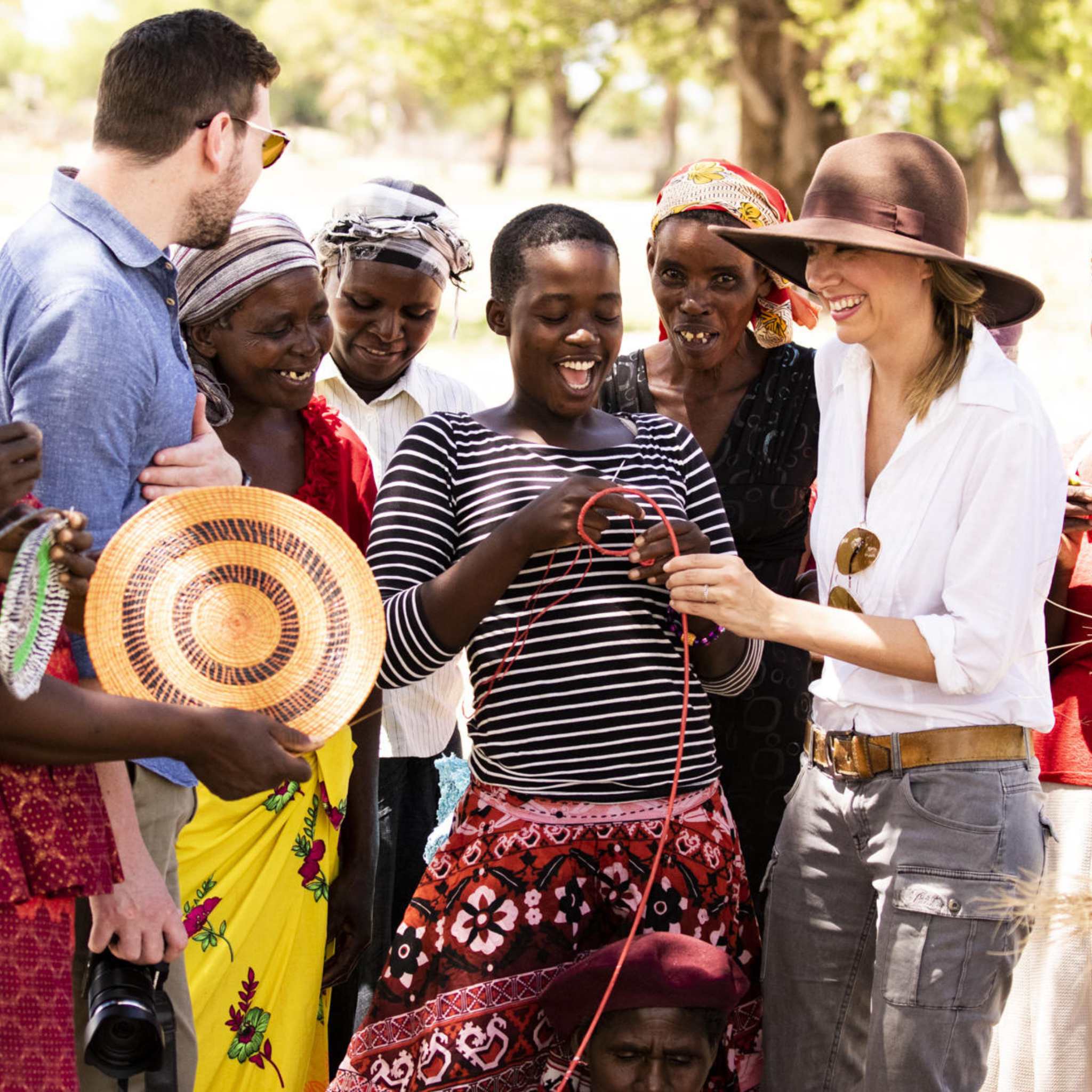
- Full Country Name Republic of Zimbabwe
- Area 390,580 sq km
- Population 15.764 million (UN 2015)
- Capital and largest City Harare
- Borders South Africa, Botswana, Zambia and Mozambique
- Religion Christian and indigenous beliefs
- Time Zone Standard time is two hours in advance of Greenwich Mean Time
- Languages English is widely spoken and one of the official languages, together with Shona and Ndebele being the most popular. The 16 official languages also include Kalanga, Nambya, Venda, Suthu and Tonga.
- Country Dialling Code +263
Zimbabwe highlights
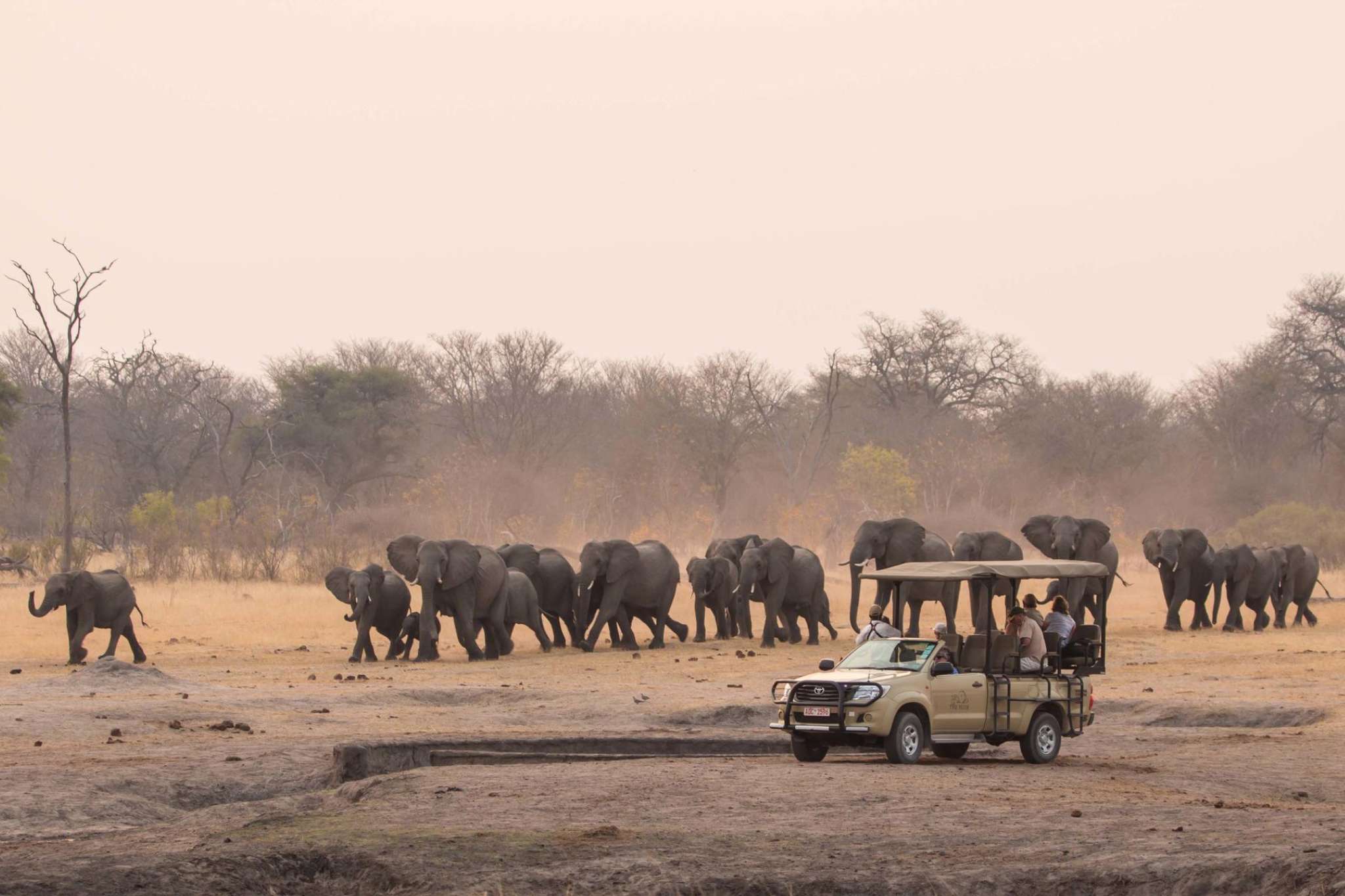
Hwange National Park
Hwange National Park in Zimbabwe is famous for its large elephant herds, diverse wildlife, and expansive savannahs. It is home to lions, leopards, buffalo, giraffes, and hundreds of bird species, making it one of Southern Africa’s premier safari destinations.
Hwange National Park
Hwange National Park in Zimbabwe is famous for its large elephant herds, diverse wildlife, and expansive savannahs. It is home to lions, leopards, buffalo, giraffes, and hundreds of bird species, making it one of Southern Africa’s premier safari destinations.
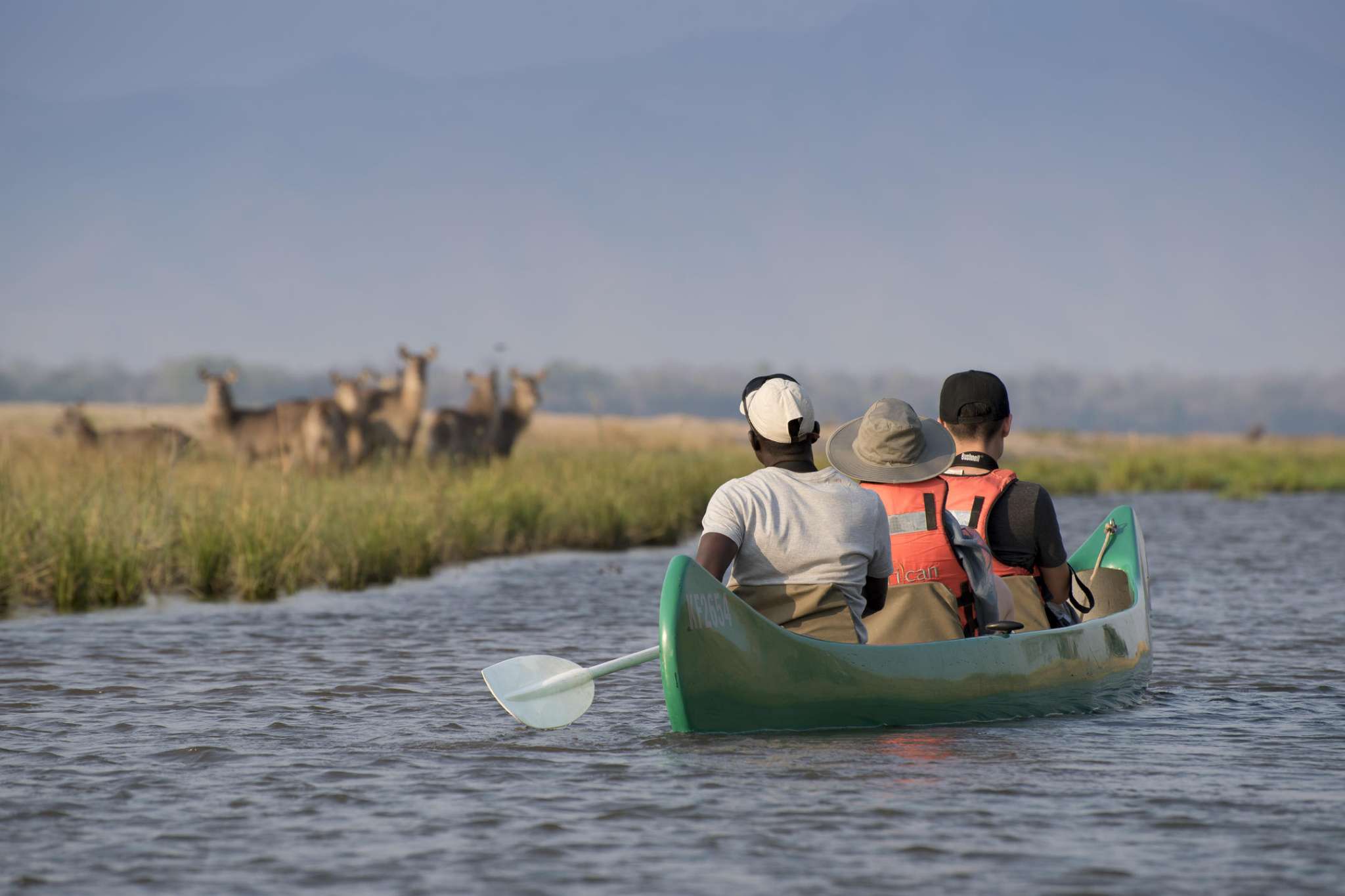
Mana Pools
ChatGPT said: Mana Pools National Park is a UNESCO World Heritage Site known for its wild Zambezi floodplains, abundant wildlife, and walking and canoe safaris.
Mana Pools
Mana Pools National Park is often described as one of Africa’s most pristine safari destinations. A UNESCO World Heritage Site, it is known for its Zambezi floodplains, abundant wildlife, and walking and canoe safaris.
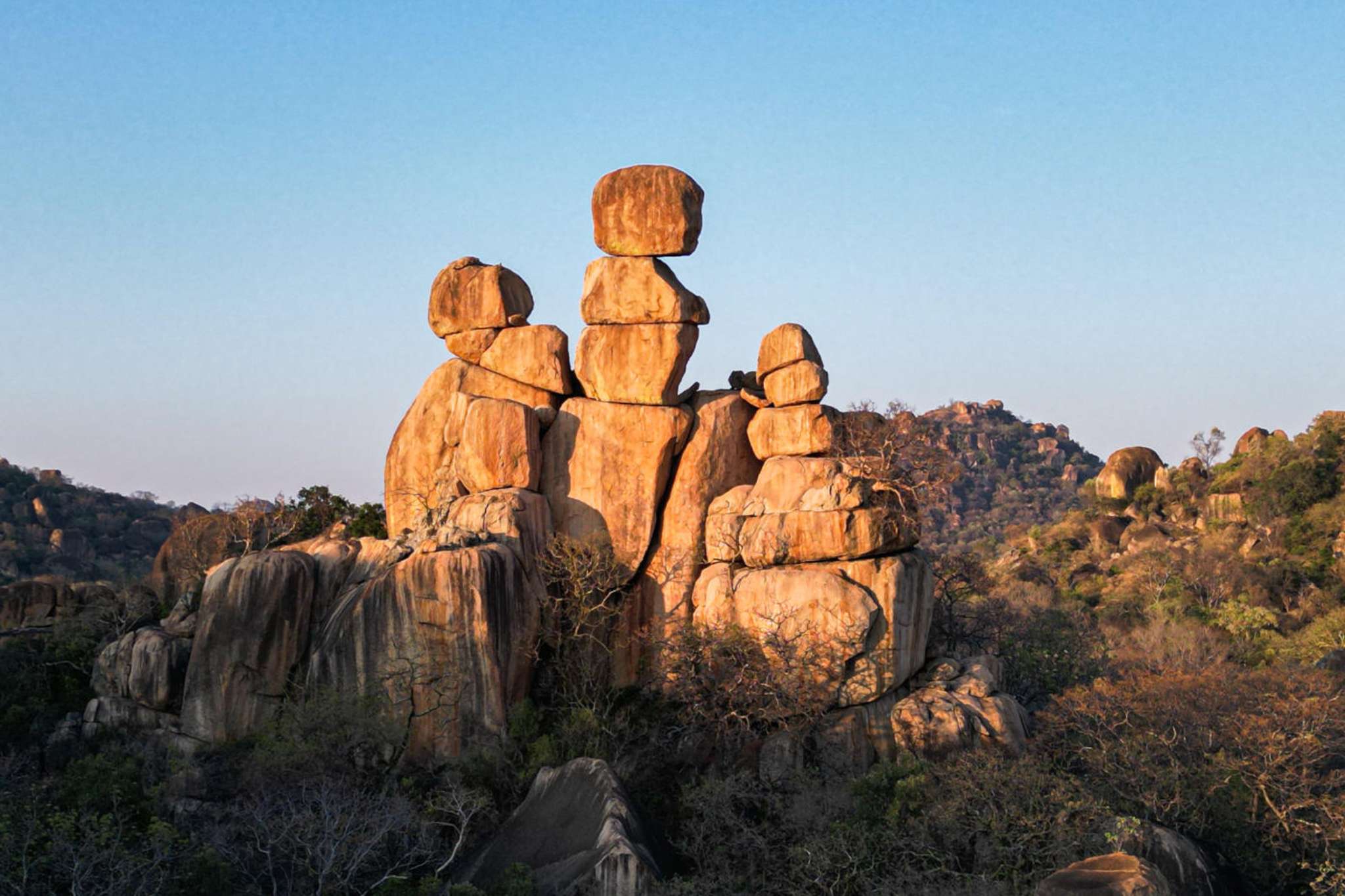
Matobo National Park
Matobo National Park is known for its balancing rocks, San rock art, and rhino populations, with leopards, antelope, and diverse birdlife all within in its granite hills.
Matobo National Park
Matobo National Park in Zimbabwe is famous for its balancing rock formations, ancient San rock art, and populations of black and white rhinoceros. The park’s granite hills and wooded valleys also support leopards, antelope, and a variety of birdlife, making it a unique mix of history, culture, and wildlife.
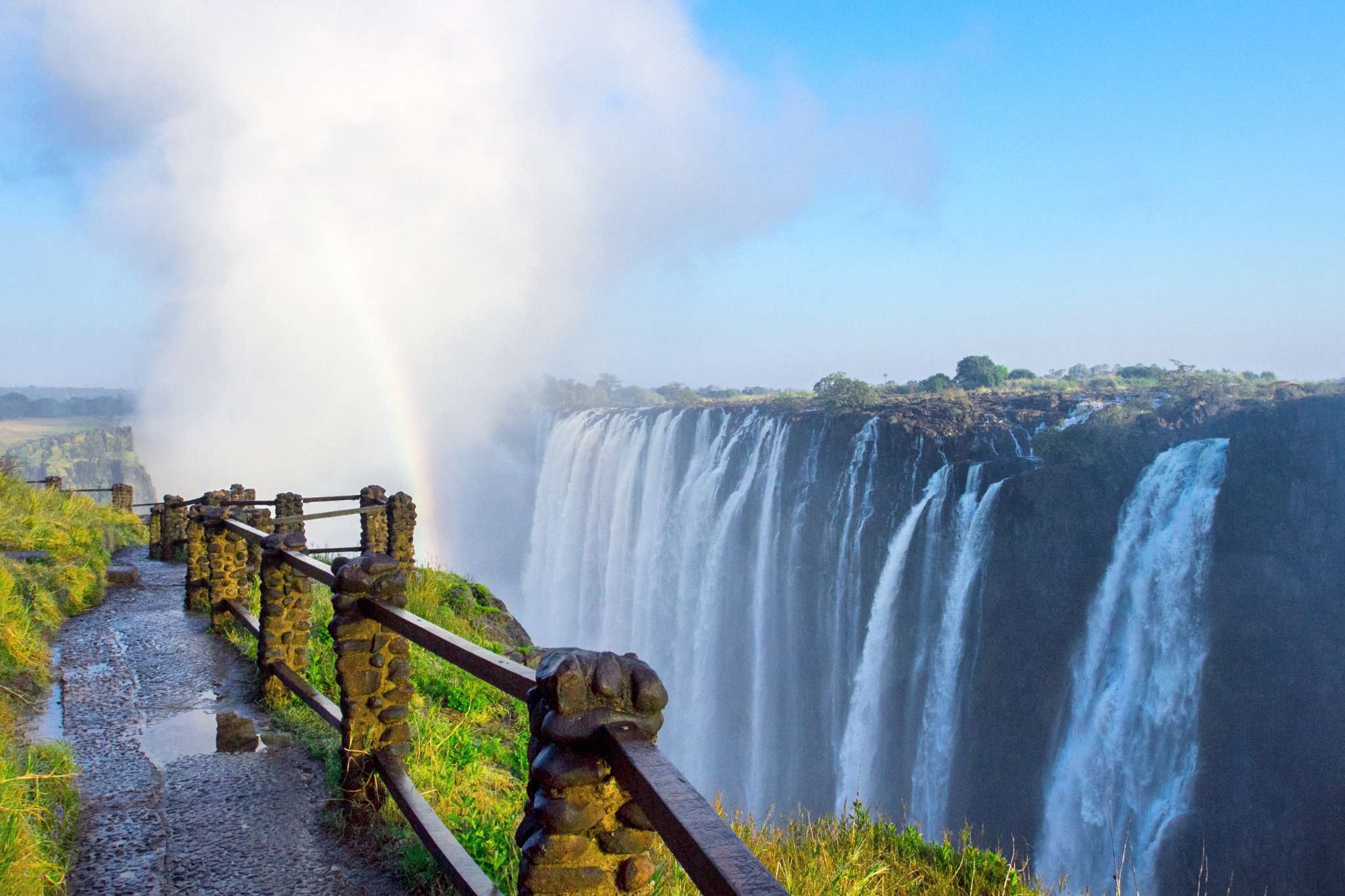
Victoria Falls
Mosi-oa-Tunya, “The Smoke That Thunders,” is one of the Seven Natural Wonders of the World and the perfect place to wind down after a safari in East or southern Africa safari.
Victoria Falls
Mosi-oa-Tunya, “The Smoke That Thunders,” is one of the Seven Natural Wonders of the World and the perfect place to wind down after a safari in East or southern Africa safari.
Zimbabwe experiences
Blog posts on Zimbabwe
Essential trip information
-
Accommodation
-
Accommodations in Africa, including hotels, lodges, and tented camps, vary from good tourist standards to award-winning deluxe properties. Occasionally, circumstances beyond Bench Africa’s control may necessitate a change in the assigned hotel, lodge, or camp. In such cases, we will make every effort to provide advance notice. However, please note that we may not be able to provide up-to-date information on the substitute property.
For information about the individual hotels, lodges, or tented camps designated for your stay, please consult your itinerary for a detailed overview.
Adventure Camping
We recommend this for the more intrepid travellers who want to get their hands dirty! Guests will put up their own tents and may be required to help around the campsite. The basics are catered for, as well as two-man tents and sleeping mats and campsites preselected to stay at along the journey. The amenities at these campsites can vary quite drastically depending where you are in Africa and what you pay. For example in the Serengeti there is no running water at the campsites, however in other parts of Africa the campsite may have a swimming pool.
Fully Serviced Camping
For those that want to experience a traditional safari, under canvas but would still like the chance to relax and take time to enjoy their environment we would recommend fully serviced camping. On arrival the mobile camp is set up and ready to go. The tents are spacious and can be really quite luxurious, often with camp beds and en-suite bathrooms, as well as a full staff of chefs, waiters and other helping hands. Here you will have lighting, hot water and cold drinks but you still have that amazing feeling of being at one with nature!
Luxury Tented Camping
Luxury tented camps are a very popular choice on safari because these camps are very intimate, usually with no more than 20 tents on site. These luxury tents offer spacious rooms with electricity, proper beds, as well as en-suite bathrooms with running hot and cold water. The cuisine and service is of a very high standard and you will eat like a king, with 3 decadent meals a day, as well as snacks. All luxury tented camps offer an all-inclusive package to incorporate meals, local drinks and game viewing activities. At night you can still go to sleep, under canvas with the sounds of the African wilderness around you. This is how you do safari in style!
Safari Lodges
Safari Lodges vary considerably in size and architectural design but essentially these are much more permanent structures, often with many more rooms than luxury tented camps. They will often have a swimming pool and conferencing facilities. A lodge will celebrate the nature surrounding it and will usually blend in with its surrounds and built making natural, locally sourced materials.
Hotels
This would commonly be the largest of all the accommodation types but again can vary quite dramatically in style, size and the amenities that it offers. There is typically a reception area, with rooms opening directly onto a hallway. They would be less exclusive that the aforementioned accommodation types, with restaurants and other facilities open to the public.
Boutique Hotels
A boutique hotel is a 5-star establishment providing all the features and facilities of a standard hotel but is always unique and very stylish. These properties are usually smaller and more intimate than a hotel and offer a very high-end service.
Note
Hotels, lodges and tented camps in Africa range from good tourist standard to award- winning deluxe properties. On occasions it may be necessary to change a hotel, lodge or camp due to various reasons, which would be out of the control of Bench Africa. In this situation we will make every effort to give you as much advance warning as possible. In the event of this happening we may not be able to send out up-to-date information on this substitute property.
For more information on the individual hotels, lodges or tented camps where you will be staying please refer to your itinerary or speak to one of our Africa experts.
-
Additional Costs
-
Upon entry into the Victoria Falls National Park, daily park fees apply, amounting to USD 50 per person. Additionally, there is a USD 10 per person fee for river activities and a USD 15 per person charge for helicopter rides fuel levy. All fees are to be paid in cash locally and are subject to change.
-
Clothing
-
General Information
In most of Africa, formal attire is typically unnecessary; therefore, we recommend limiting your luggage to the basics. However, more formal attire may be necessary in prestigious city hotels or during luxury rail journeys, such as Rovos Rail or the Blue Train in South Africa.
On a wildlife safari, casual cotton clothing is the most practical. Opting for calm, neutral colours like tan or khaki is advisable, although a specific bush outfit is not essential. It is recommended to wear some form of sun-protective headgear, and sunglasses are essential.
To cope with colder evenings and early mornings, it’s advisable to bring a warm fleece or jacket. Additionally, a lightweight raincoat may prove useful, considering the possibility of seasonal rains. While heavy footwear is unnecessary, it’s advisable to wear sturdy, comfortable walking shoes or boots for nature walks. It’s also recommended to bring a change of shoes, like trainers, for the camp setting.
The dress code is informal at all camps but bring long-sleeved shirts and trousers for the evenings to minimise exposure to insect bites.
Many hotels, game lodges, and camps provide laundry facilities, often as a complimentary service, especially when luggage space is limited. However, if you have a busy itinerary, it is advisable to check in advance that your clothes will be ready before your departure.
Safari Checklist
- Essentials:
- Soft-sided bag for easy storage in safari vehicles and light aircraft
- Hat for sun protection
- Reusable water bottle
- Good quality, preferably polarized sunglasses
- Binoculars
- Torch
- Camera, charger, and adaptor
- Travel adaptor for charging devices
- Spare glasses (if you wear contact lenses)
- Comfortable walking shoes, trainers, and sandals
- Shorts/skirts
- Long trousers/slacks
- T-shirts/long-sleeved cotton shirts for cooler evenings
- Sweater/fleece/raincoat for early morning and late afternoon game activities
- Warm jacket, beanie, gloves, and scarf for winter months
- Swimming costume
Health and Safety:
- Basic medical kit (aspirins, Elastoplast, Imodium, antiseptic cream, etc.)
- Malaria tablets and antihistamine cream
- Insect repellent containing DEET (though many lodges provide sprays)
- Protective suntan lotion, especially for pale and sensitive skin
- Tissues or ‘wet wipes’
- Lip balm
- Essentials:
-
Communication
-
Africa generally has a well-established telephone, mobile, and satellite network. International telephone services are commonly provided by hotels and lodges, with private telecommunication centres available in larger towns. If you have a mobile phone with roaming capabilities, you can utilise cellular networks, which are prevalent in most larger towns and tourist areas. Alternatively, you have the option to purchase a local SIM card upon entering the country. It’s important to note that phone coverage may be limited in wildlife areas, and Wi-Fi may not always be accessible in camps and lodges. However, many hotels and lodges do provide email and internet services, contributing to communication options while travelling in Africa.
-
Country Overview
-
Zimbabwe, known for its dramatic landscapes and rich cultural heritage, welcomes travellers with a range of attractions and warm hospitality. From iconic natural wonders to historical sites, the country offers a captivating journey through the soul of Southern Africa.
Victoria Falls, one of the world’s most stunning waterfalls and a UNESCO World Heritage site, spans the Zambezi River. The town of Victoria Falls serves as a gateway to this spectacle, offering exciting activities from bungee jumping to sunset cruises. Hwange National Park, among Africa’s largest game reserves, is home to a diverse array of wildlife, including elephants, lions, and various bird species. The park’s varied ecosystems, from woodlands to grasslands, offer an immersive safari experience. Mana Pools National Park, recognized as a UNESCO site, invites adventurers to explore its floodplains and meandering rivers on foot, providing a unique perspective on wildlife. The Great Zimbabwe Ruins, an ancient city with intricate stone structures, reflects the country’s rich history and architectural prowess. Matobo National Park, renowned for its balancing granite rocks and ancient rock art, offers a spiritual journey amid stunning landscapes. The city of Bulawayo, with its colonial-era architecture, serves as a cultural hub and gateway to the Matobo Hills.
Often dubbed the “Jewel of Africa,” Zimbabwe invites travellers to discover its treasures, from natural wonders to cultural gems. Whether exploring ancient ruins, embarking on safaris, or engaging with local communities, Zimbabwe promises an enriching journey resonating with the spirit of adventure and discovery.
-
Electricity
-
Voltage & Frequency
The standard voltage in Zimbabwe is 220V, with a frequency of 50 Hz.
Top Tips
Generators typically supply electricity in most camps and some lodges/camps only have power in the early mornings and evenings. While batteries can often be recharged during the day in camps, it is recommended to confirm with the camp manager.
Socket Types in Zimbabwe:
Type D (Old British 3-pin)
Type G (Irish/British 3-pin) -
Families
-
Consideration when Travelling with Children
We would not recommend travelling to Zimbabwe with children under the age of 6 as it is not malaria-free.
Why Choose Zimbabwe for your Family Holiday?
Zimbabwe can be an affordable option for families that want their children to experience the magic of an African safari.
At the falls there are numerous activities, suitable for older, thrill-seeking teenagers. Activities here include white water rafting, helicopter flights, bungee jumping, micro lighting and horse riding. Otherwise, the thrill of seeing the falls is enough for some and younger families may want to experience this magnificent view on a river cruise.
Allow one of our consultants to design a holiday to suit the needs of you and your family.
-
Food & Drink
-
General guidelines
Most lodges and safari camps have restaurants and licensed bars, and the food offered ranges from good basic meals to gourmet style. The standard of food in lodges and camps is generally very good.
Bottled water is available in all tourist centres. It is advisable to drink at least 2-3 litres of water per day whilst on safari as dehydration can occur quickly, especially in the summer months. It is best to assume that water is NOT safe to drink unless it has been boiled. It is always wise to double check locally if in any doubt.
Wine tends to be imported and may be expensive; however, local beer and local spirits are reasonably priced and easily available as are soft drinks (Pepsi, Coca Cola etc) and bottled water.
-
Health
-
Health requirements vary from country to country. We recommend you speak to your GP or local Travel Doctor for up-to-date information and advice. The following information is to be used as a guide only.
Malaria: For travel to various regions in Africa, taking precautions against malaria is advisable. Consult with your doctor to determine the recommended prophylactic for your trip.
-
Insurance
-
Our Tips for Choosing Insurance
Insurance is a mandatory requirement for your travels, and we strongly advise you to secure Comprehensive Travel Insurance at the time of booking your trip.
Make sure you have a thorough understanding of the Terms and Conditions outlined in your policy and that you are well informed about your insurance coverage to ensure that you are adequately prepared for any unforeseen circumstances during your travels.
-
Internal Flights
-
Guidelines
It is advised to request the local operator of the hotel/lodge to reconfirm all onward flights before departure to ensure the accuracy of the flight timings.
While most departure taxes (both domestic and international) are typically included in the tickets, certain regional and private airports may require local payment for taxes.General Luggage & Weight Restrictions on Light Aircraft
Most charter companies strictly adhere to luggage allowances, which can vary from 15kgs to 20kgs per passenger, including camera equipment and hand luggage. It is imperative to check your itinerary for the accurate luggage weight allowance specified for your trip.
Soft bags are the only acceptable form of luggage, as hard suitcases cannot be accommodated due to their physical inability to fit into safari vehicles and small aircraft storage compartments. Pilots must have the flexibility to manipulate soft bags into these compartments.
On certain light aircraft, passengers may also be subject to personal weight restrictions for safety reasons. It is advisable to check with us upon booking to ensure compliance with these guidelines and to address any specific concerns.
-
Money Matters
-
Currency
US dollars and South African rands are universally accepted in Zimbabwe; however, pre-2003 dated notes are no longer valid, and caution should be exercised with high denomination notes.
You Should Know
ATMs are conveniently located across major city centres and shopping complexes throughout Zimbabwe.
While Visa and MasterCard are widely accepted at most restaurants, shops, and hotels, it’s advisable to avoid using credit cards in Zimbabwe. Diners Club and American Express may not always be accepted. Ensure you carry a valid passport or photo identification as proof of identity, as it may be requested. Notably, credit cards are not accepted at petrol stations.
Credit cards are not accepted everywhere, so it is not advisable to rely solely on credit cards as a primary source of funds, particularly in places where card usage may be limited, such as remote lodges. It is recommended to inform your bank before using your credit card overseas, and using a PIN number is considered more secure than a signature. In Africa, Visa is the most widely accepted credit card, with larger establishments also accepting American Express and MasterCard. Diners Club is not generally accepted in most establishments.
-
Photography
-
Photographing of airports, Government buildings, etc is prohibited. Some local people strongly object to photographs being taken without permission, but will sometimes agree upon payment of a small tip. Please check with your guide.
Film and memory cards are generally available, but stocks can be limited and could be expensive, so we suggest you carry with you adequate supplies. Telephoto lenses for game viewing, lens hood and ultra violet filters will be useful – bring your dust cover. Batteries can be recharged at most lodges and hotels, but it is advisable to bring spares.
See our 7 Handy Tips for Taking Mesmerising Photographs for tips on nature and wildlife photography.
-
Recommended Reading
-
- When a Crocodile eats the Sun: A Memoir of Africa by Peter Godwin
- Dinner with Mugabe by Heidi Holland
- African Thunder: The Victoria Falls by Jan & Fiona Teede
- Where We Have Hope: A Memoir of Zimbabwe by Andrew Meldrum
-
Responsible Giving
-
As you prepare for your journey to Africa, consider making a positive impact on local communities by allocating a small space in your luggage for essential items that can significantly improve the lives of those in need.
Explore the Pack for a Purpose initiative, connecting travellers with specific requirements identified by local projects. The website provides a platform where you can find a list of requested items and guidelines for responsible giving.
Additionally, many camps actively engage in community projects, often sharing details on their websites. Take a moment to visit the websites of the camps you’ll be staying at. Check if they have specific needs for supplies that you can bring and donate upon your arrival. A small act of generosity can make a significant difference.
-
Road Travel
-
Road Conditions
Please note that road surfaces vary from tarmac, gravel, sand and occasionally vehicles may travel “off road”. Additionally, when exploring remote areas, National Parks, and Reserves, expect rough and bumpy roads, occasionally in poor condition and susceptible to adverse weather conditions.
Road Safety
Established in 1969, Bench Africa has decades of experience in planning safaris with safety as a priority. We recommend travelling with a reputable ground operator that follows strict speed and road safety guidelines. Booking through Bench Africa ensures you are in capable hands throughout your journey.
-
Safety and Security
-
General Safety
- Doors should be locked when driving after dark.
- Don’t walk alone at night in city streets, isolated beaches or remote areas.
- Travellers should not display unnecessary signs of wealth (e.g. mobile phones, money, and expensive jewellery) on the streets.
- Leave all your valuables including passports locked in the room safe where available.
Safety on Safari
When staying at safari camps and lodges, they will often give you a safety briefing and there are several key points to keep in mind regarding wildlife respect and safety:
- Wild animals in Africa are not like those found in theme parks; they are not tame.
- Camps are often unfenced, allowing wild animals to roam freely. While attacks are extremely rare, it is crucial to strictly follow camp guidelines to ensure your safety.
- Pay close attention to the camp staff and guides.
- Avoid wandering off on your own without a guide, even within the camp. Once you retire to your room at night, it is important that you do not leave.
- Observe animals silently, minimising disturbance to their natural activities. Loud talking on game drives can frighten the animals away.
- Never attempt to attract an animal’s attention. Avoid imitating animal sounds, clapping your hands, pounding the vehicle, or throwing objects.
- Respect your driver/guide’s judgement regarding proximity to lions, cheetahs, and leopards. Avoid insisting on getting the vehicle closer for a better photograph, as it can disrupt a hunt or cause animals to abandon a hard-earned meal.
- Dispose of litter properly, as litter on the ground can harm or poison animals and birds.
- Never attempt to feed or approach any wild animal on foot, particularly near lodges or in campsites where animals may have become accustomed to human visitors.
- Refrain from smoking on game drives, as the dry African bush is highly flammable, and a flash fire can pose a threat to animals and their habitat.
-
Shopping
-
There is a wealth of beautiful souvenirs and crafts available for purchase. Look out for vibrant materials, sisal bags, wood or stone carvings, unique artwork, handcrafted jewellery, woven goods, and appealing basketry. Bargaining is a customary practice at markets and roadside stalls but not typically in shops. Locals may initially quote inflated “tourist prices,” and negotiations are expected until a fair value is reached.
Cash in the local currency is widely accepted, as well as US Dollars, while credit cards may only be suitable for larger shops.
Bench Africa is committed to actively supporting anti-poaching initiatives. As part of our dedication to responsible tourism, we emphasise ethical practices and discourage the purchase of items associated with illegal wildlife trade, such as ivory, rhino horn, animal furs/hides, and other prohibited materials. Our commitment aligns with the ban on hunting and the protection of wildlife, reinforcing our stance against activities that harm or exploit endangered species.
-
Tipping
-
Tipping Guidelines
Tipping is customary in Zimbabwe, though not as widespread as in the United States or Europe. It is discretionary, a way of expressing gratitude for exceptional service.
To assist with budgeting, the following guidelines are provided in US Dollars:
Driver (per person per full day): $5.00
Guide (per person per full day): $10.00
Camp Staff (per person per day): $5.00
Hotel porters (per bag): $1.00
Restaurant (per person per meal): $1.00
A la carte dining (percentage of bill): 10% -
Useful Numbers
-
Embassy of the Republic of Zimbabwe
25 Numeralla Street,
O’Malley, ACT 2606, Australia
Tel: +61 2 6286 2281Australian Embassy in Zimbabwe
1 Green Close, Borrowdale
Harare, Zimbabwe
Tel: +263 242 853 235 55 -
Visa Information
-
Do I need a Visa to Travel to Zimbabwe?
We do not provide advice on specific visas as regulations are subject to change and can vary from person to person. Please refer to Smart Traveller for the most up-to-date information. We advise checking visa requirements at the time of booking and again before travelling to keep abreast of any changes that may have occurred.
Visa requirements vary between countries, and it is essential that you acquire the appropriate visa for your journey and ascertain whether it can be applied for in advance or on arrival, in which case you will need the exact physical money. Often, your passport must be valid for at least six months beyond your intended stay, with a minimum of two blank pages (a double page). You will be required to have onward travel documents and sufficient funds. It is advisable to carry photocopies of all important documents.
It is your personal responsibility to confirm that your passport is valid, contains the necessary visa, and that you have all required travel documents.
-
When to Travel
-
Climate
Zimbabwe experiences a pleasantly temperate climate throughout the year. The cooler, dry months from May to October are characterised by warm, sunny days and clear nights. In the low-lying areas of the south and the Zambezi Valley to the north and west, warm temperatures persist year-round. The rainy season typically spans about three months, occurring sometime between November and April.
Top Tip
- The optimum time to witness Victoria Falls in full flood is between the months of June to September when visibility is at its best.
Dry season: April to October
This is the country’s dry season and is arguably the optimal time of year to experience a safari in Zimbabwe, as wildlife is plentiful nearby permanent water sources, which are few and far between.
Benefits to visiting Zimbabwe in the dry season:
- Game viewing is excellent at this time of year
- Temperatures are pleasant although it is important to mention that the evenings in May and June can be lower so it is advisable to pack accordingly. Towards the end of the dry season the climate can be hot and humid.
- Unlike some safari destinations Zimbabwe doesn’t get crowded in the peak season.
- In May and June game viewing can be hindered by long grass.
- There are fewer mosquitos at this time of year.
Downsides of visiting Zimbabwe in the dry season:
- As with all safari destinations prices are higher in the dry season, so the budget conscious may wish to visit during the green season.
Green season: November to March
You can expect heavy rainfall. Plains are covered with tall grass and heavy foliage. Temperatures are higher and in between the showers of rain the days are less dusty.
Benefits to visiting Zimbabwe in the green season:
- This time of year is a photographer’s dream!
- Landscapes are emerald green and scenic.
- Baby animals are in abundance at this time of year.
- Prices are significantly reduced making it a much more affordable option.
- Visitors are fewer so it makes for a much more private safari experience.
- Victoria Falls is in full flow.
- There is an abundance of birdlife.
Downsides of visiting Zimbabwe in the green season:
- In December through to February you can expect persistent rainfall.
- Some of the dirt roads can be blocked off if they become flooded.
- Long grass can make it trickier to spot wildlife.
Bench Africa on Instagram
